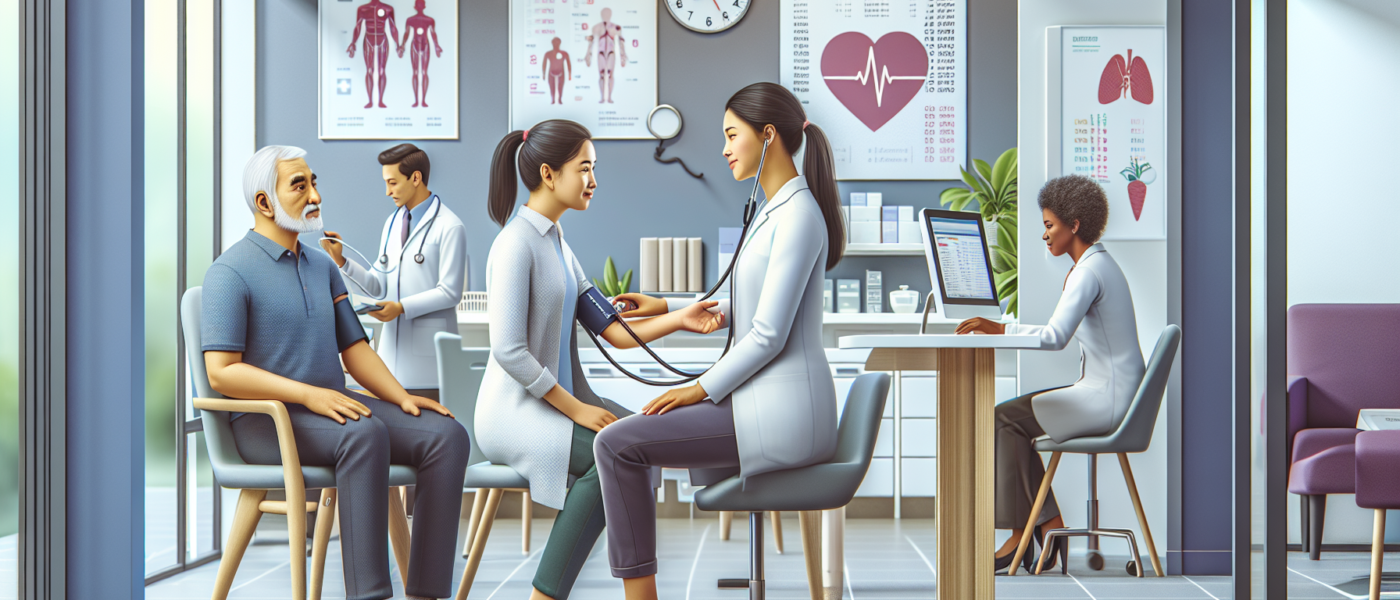The Importance of Regular Health Check-Ups
Key Takeaway
Regular health check-ups are vital for the early detection and prevention of diseases, ensuring overall well-being, and maintaining a high quality of life. They provide an opportunity for healthcare professionals to identify risk factors, offer personalized advice, and foster a proactive approach to health management.
In the hustle and bustle of modern life, health often takes a backseat to work, family, and other responsibilities. However, neglecting regular health check-ups can have severe consequences, ranging from the unnoticed development of chronic diseases to missing critical early signs of serious health conditions. Prioritizing regular health check-ups is a proactive step toward maintaining good health and preventing potential issues from progressing into more severe problems.
Early Detection and Prevention
One of the most compelling reasons for regular health check-ups is the early detection and prevention of diseases. Many diseases, such as cancer, diabetes, and hypertension, can develop silently without noticeable symptoms for years. By the time symptoms become apparent, the condition might have advanced to a more dangerous stage that is harder to treat.
Regular health screenings and tests, such as blood pressure measurements, blood tests, mammograms, and colonoscopies, enable healthcare providers to detect potential health problems early. Early detection means that conditions can be managed more effectively and treated more successfully, often preventing complications and reducing the need for more intensive treatments.
Monitoring Existing Conditions
For individuals with existing health conditions, regular check-ups are crucial. Chronic conditions like asthma, diabetes, and heart disease require ongoing management and monitoring to ensure that treatment plans are working effectively. Regular visits to healthcare providers allow for adjustments to medications, lifestyle recommendations, and management plans based on the latest information and the patient’s current status.
Establishing a Baseline
Regular health check-ups help establish a baseline for your health. By undergoing periodic evaluations, your healthcare provider can track changes over time. This information is invaluable in recognizing trends, understanding personal health patterns, and making informed decisions about interventions. Understanding what is normal for you makes it easier to identify when something is off and requires attention.
Vaccinations and Immunizations
Vaccinations are a crucial aspect of preventive healthcare. Regular check-ups ensure that individuals stay up-to-date with recommended immunizations, protecting them from preventable diseases. Vaccines not only safeguard personal health but also contribute to the broader community’s health by preventing the spread of infectious diseases.
Building a Relationship with Healthcare Providers
Consistent health check-ups foster a strong, trusting relationship between you and your healthcare providers. This rapport is beneficial for several reasons. Firstly, it allows healthcare providers to gain a comprehensive understanding of your medical history, lifestyle, and health concerns, facilitating more personalized and effective care.
Secondly, a trusted relationship makes it easier to discuss sensitive issues openly, ensuring that you receive appropriate advice and interventions. Lastly, when an urgent health issue arises, having an established connection with a healthcare provider can expedite the process of getting the necessary care and support.
Mental Health and Emotional Well-Being
Regular health check-ups are not limited to physical health—they also include mental health assessments. Mental health is an integral part of overall well-being, and regular check-ups provide an opportunity to discuss stress, anxiety, depression, and other emotional health concerns with a healthcare professional. Detecting mental health issues early and accessing appropriate resources can significantly improve quality of life.
Healthy Lifestyle Guidance
Health check-ups are a valuable time to receive expert guidance on maintaining a healthy lifestyle. Healthcare providers can offer advice on nutrition, exercise, weight management, and stress reduction tailored to your specific needs. This personalized advice helps individuals make informed choices about their daily habits, contributing to long-term health and well-being.
Cost-Effectiveness
Investing in regular health check-ups can be cost-effective in the long run. Preventive measures and early treatments are often less expensive than treating advanced diseases and their complications. By catching health issues early, individuals can avoid costly hospitalizations, surgeries, and long-term treatments, ultimately saving money and reducing the financial burden on healthcare systems.
Enhancing Quality of Life
Ultimately, the goal of regular health check-ups is to enhance overall quality of life. By staying on top of your health, you can enjoy a more active, vibrant, and fulfilling life. Proactively addressing health concerns, adhering to preventive measures, and making informed lifestyle choices contribute to longer, healthier, and happier lives.
Conclusion
Regular health check-ups are more than just routine visits to a healthcare provider—they are a cornerstone of preventive healthcare. They provide the opportunity to detect and prevent diseases early, manage existing conditions effectively, and receive personalized advice for maintaining a healthy lifestyle. By prioritizing regular health check-ups, individuals can take control of their health, fostering well-being, longevity, and a higher quality of life.

